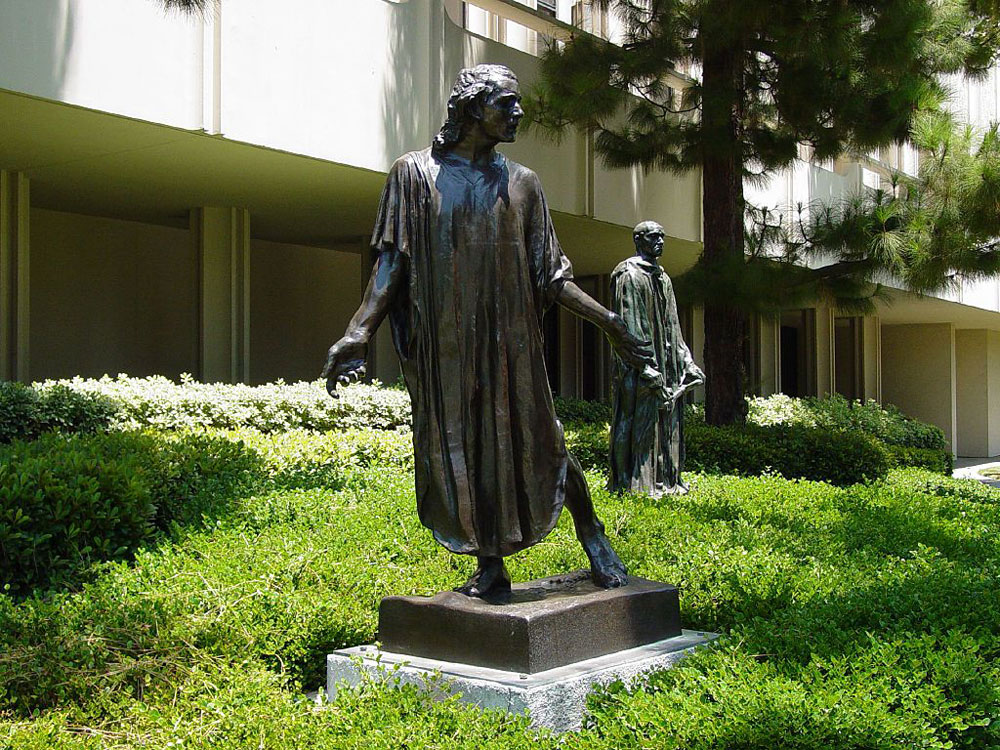
September 16, 2020; Los Angeles Times
The Los Angeles County Museum of Art (LACMA) is the latest cultural institution to be challenged on the business ownings of a wealthy board member, Tom Gores. The calls for his removal are part of a wave of actions involving activists who seek to hold institutions to their public statements of support and accountability following the killing of George Floyd.
Last week, as the Los Angeles Times reported, more than 100 influential artists signed onto an open letter to the leadership of LACMA calling for the museum to remove Gores from its board of trustees. The letter serves to amplify the ongoing advocacy for Gores’ removal by national organizations, Color of Change and Worth Rises. Gores’ private equity firm owns a company called Securus, which is a prisons communications firm widely criticized for charging exorbitant fees to people in prison and detention centers. In some states, family members can be charged $5 or more for a 15-minute phone call.
In their letter to LACMA leadership, the letter signers reference a similar case at the Whitney Museum that NPQ reported on earlier this month, as well as the widely covered efforts to remove opioid money from civic institutions:
Echoing the artists, art workers, curators, scholars, and theorists who catalyzed the successful removal of Safariland CEO Warren Kanders from the Whitney Museum of American Art Board of Trustees, those who are advocating for the removal of BlackRock CEO Larry Fink from the Museum of Modern Art Board of Trustees, and those members of the P.A.I.N [Prescription Addiction Intervention Now] coalition working to disentangle opioid money from the endowments of numerous public institutions, we condemn the artwashing that has poisoned the wells of our cultural centers.
In an essay for the Oxford Review of Books, Ben Jacobs explains the term artwashing, which may be new to some of our readers, like this: “Originally coined in reference to gentrification, the term has taken on new meaning amidst growing consciousness around the use of cultural engagement to whitewash exploitative or oppressive practices.”
Sign up for our free newsletters
Subscribe to NPQ's newsletters to have our top stories delivered directly to your inbox.
By signing up, you agree to our privacy policy and terms of use, and to receive messages from NPQ and our partners.
In the wake of the killing of George Floyd by Minneapolis police, NPQ has covered the role of institutional statements of support and accountability for systemic racism and its consequences. Indeed, the activists in this case connect the removal of Gores from the LACMA Board of Trustees directly to LACMA’s own recent statement of accountability. The letter reads:
In a statement issued in response to the extensive protests that followed the horrific murder of George Floyd by police, a museum spokesperson declared, “We stand with our community in rejecting racism, in mourning, and in demanding justice for the deaths of countless African Americans who continue to be targeted by systematic violence. We recognize that museums cannot claim neutrality in addressing the horrific issues that have plagued our society for centuries.” It is imperative that LACMA examine its own breach of neutrality as it pertains to the diverse communities it wishes to serve. In doing so, the Board of Trustees must repudiate the rotten entanglements of racism, police brutality, and state-sanctioned violence by renouncing Tom Gores.
In calling LACMA’s decision to have Gores on its board of trustees a “breach of neutrality,” the activists are declaring that cultural institutions may no longer have it both ways: on the one hand claiming solidarity with movements for social change and the artists who participate and amplify those movements, and on the other hand, providing positions of prestige and influence to people whose very wealth comes from the industries and practices that necessitate such movements.
Artwashing is an industry-specific form of the larger structural dynamic of nonprofit organizations of any type accepting money from people and companies in exchange for warm welcome under our mission-centered and politically neutral cover. Institutions of many kinds find ways to depoliticize the inherently political to rationalize this exchange. In the case of art, Ben Jacobs writes:
These arguments follow an established tradition of depicting culture as something abstracted from the world in which we live. In this formulation, “culture” and “art” are discrete categories that serve inherent human needs through their aesthetic power. The experience of art is direct and primal, unmediated by the material structures that exist outside of the exhibition hall.
But the relentless work of activists and narrative-changing organizations like Color of Change is calling us, as civil society institutions, to a new standard of integrity—to a kind of institutional holism where contradictions between stance and practice will be regularly and very publicly challenged. Meeting that new standard may require, as this LACMA campaign and a growing number of similar campaigns attest, initial and ongoing scrutiny by nonprofit organizations of how their board members generate wealth. According to Hyperallergic, Worth Rises has been advocating directly to Gores for over a year and after some price reductions for inmates and their families, Gores’ team cut off their talks. Bianca Tylek, executive director at Worth Rises maintains, “Changing something from evil to less evil is not a respectable business for someone on a museum board.”—Jeanne Bell













